
Ignored or hunted for many years, the Old Irish goat is being rescued and returned to domestication thanks to its unique skills, honed by and for the Irish terrain and climate.
The Old Irish Goat Society (OIGS) has worked hard for years to establish the breed's historic links and unique genome. In 2022, the Old Irish goat gained official recognition as an indigenous rare breed. Now these goats have a useful job, maintaining firebreaks to prevent heathland fires spreading to village homes. But there are still fewer than 100 registered, and those that remain in the wild have no legal protection from trophy hunting.
A LONG HISTORY IN IRELAND
Goats reached Ireland around 5000 years ago, brought by Neolithic settlers. They slowly adapted to the damp, windy climate, while learning to make the most of native vegetation. At the same time, they provided for human families, while raising their own kids. These traits made them ideal for remote rural families with little income. They provided milk, meat, hair and skins, depending only on food that they foraged themselves and needing very little human intervention. Native goats helped rural families survive through the Great Famine of 1845-1852.
Around the turn of the twentieth century, The British Goat Society (BGS) urged Irish villagers to upgrade their milkers by breeding them with bucks of the foreign and improved breeds that were popular in Britain. English breeders found that goats brought back from the Mediterranean had higher yields of milk. They hoped that cross-breeding would help poor families improve their food sources. What they did not realise was the long term effect it would have on the hardiness of Irish herds and their suitability to Ireland's environment. In both Britain and Ireland, the indigenous breed was pushed aside in preference for improved versions and anglicised foreign breeds, such as those we know well today.
This story is from the {{IssueName}} edition of {{MagazineName}}.
Start your 7-day Magzter GOLD free trial to access thousands of curated premium stories, and 9,000+ magazines and newspapers.
Already a subscriber ? Sign In
This story is from the {{IssueName}} edition of {{MagazineName}}.
Start your 7-day Magzter GOLD free trial to access thousands of curated premium stories, and 9,000+ magazines and newspapers.
Already a subscriber? Sign In
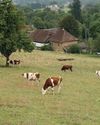
How to Buy a Smallholding in France- Long-time smallholder Lorraine Turnbull looks at the practicalities of moving to rural France
Aspiring smallholders are continually thwarted by the prices of smallholdings and property with land located within the UK. Even the humblest croft in Scotland comes with a substantial price tag and conditions which would make even an adventurous wannabee consider carefully. But all is not lost. For those willing to take the adventure of a lifetime, there is always Europe, and one of the most popular places is France.

Meet the Bournemouth goats and their supporters
These capricious animals are hard workers preserving the natural habitat
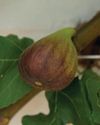
Still warm enough to sit outside with a Pizza
Henrietta Balcon uses fresh figs to create an unusual dish at Harvest time
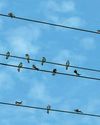
Goodbye to the birds of spring and summer
If you look and listen you might be able to see them preparing to leave says The RSPB
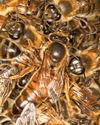
Get ready for the colder weather in the warmth of late summer
Claire Waring advises on doing the best to make sure your colonies survive until next spring
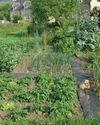
Preparing the Veg Patch for Winter
Lee Senior says, a well-run plot can excitingly continue to produce good quality, tasty, fresh food for much of winter
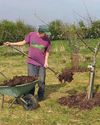
Time to prepare to plant your orchard
Wade Muggleton, smallholder and author of The Orchard Book, shares his practical experience so you can create your own fruit collection
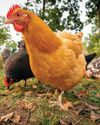
Choosing feed for the autumn
As autumn approaches, Joanna Palmer, nutritionist at the Smallholder Range, offers advice on choosing the right feed to support your adult birds through their annual moult and ensure your young birds grow and finish well at this time of the year.
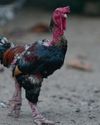
Vet advice from an experienced poultry vet
Reflecting on how much the humble hen has helped people world wide plus advice on stopping the scourge of red mite
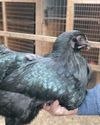
Give your hens some support
Paul Donovan looks at the right and wrong ways of handling birds